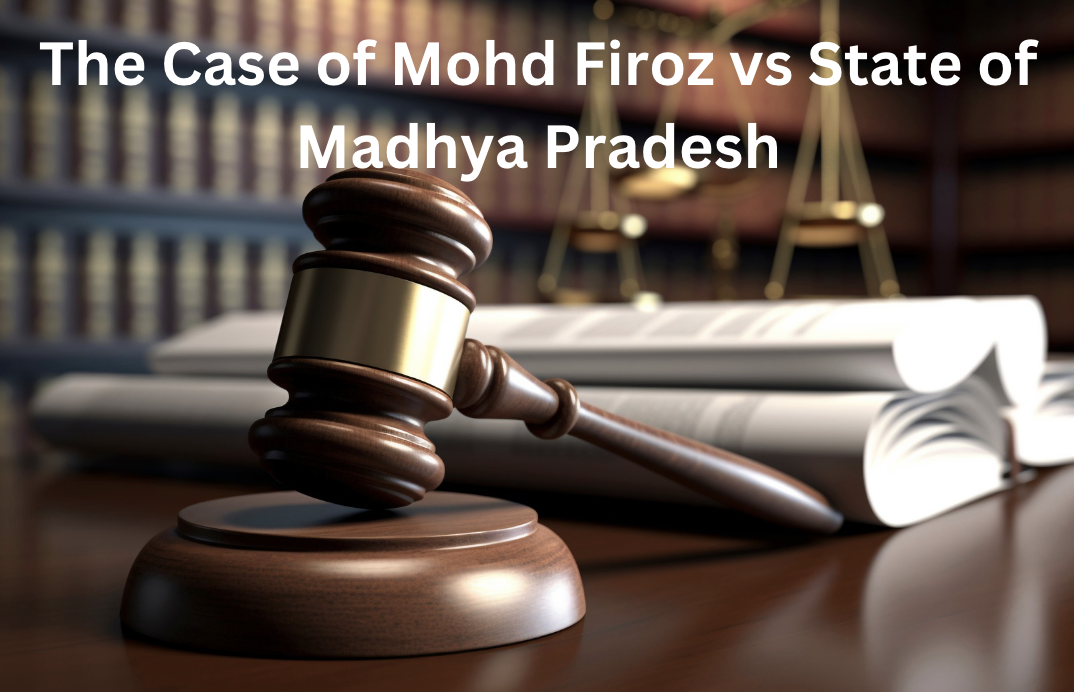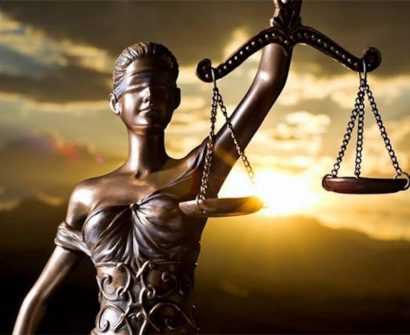
The order was issued by a three-member bench in the case of mohd firoz vs state of madhya pradesh that noted that the offender’s mental state might not always improve with the harshest penalty. After reviewing the case, the bench concluded that the evidence was sufficiently conclusive to rule out any possibility other than the accused’s guilt. In light of section 376a of the ipc, the SC panel found that it was fair to commute the death penalty to life in prison according to section 302 of the ipc. It stated that this punishment would ultimately have been appropriate given the gravity and seriousness of the offense.
mohd firoz vs state of madhya pradesh Case Facts
- The action was initially brought by Bibisidhika, Mohd Firoz’s mother, who contested the legitimacy and legality of the common judgment and the contested ruling of the Madhya Pradesh high court of justice in Jabalpur, dated July 15, 2014. Following the order granted on October 21, 2021, Firoz was appointed as the appellant by this court when Bibisidhika’s term expired.
- The case started in 2013 when Md. Firoz Khan and Rakesh Chaudhary, the two defendants, went to a house to host the aforementioned unidentified individual for the day. When the victim’s mother rejected Rakesh Choudhary, he fled, and Firoz Khan took advantage of the situation to abduct the four-year-old who was playing in the house’s courtyard.
- The local police station received a missing person’s complaint from the victim’s relatives. The girl was discovered unconscious the following day in the ghansaur district of MP, laying in a field. The victim passed away in Nagpur in April 2013 while receiving treatment, and the postmortem report verified that the girl child had been raped.
- Rakesh Choudhary, the accused, was taken into custody on April 20, 2013, and Firoz, the appellant and accused, was taken into custody on April 23, 2013.
- Mohd. Firoz, the accused, was charged with violating sections 363, 366, 376(2)(i), 376(2)(m), as well as 302 of the Indian Penal Code in addition to Sections 5(i), 5(m), and 6 of the Protection of Children from Sexual Offenses Act, 2012 (also known as the pocso act).
- Sections 109 of the IPC, Section 16/17 of the pocso act, and Sections 363 and 366 with regard to Section 34 were the charges brought against the accused Rakesh Choudhary.
- The prosecution questioned 34 witnesses to establish the accused’s guilt after they both denied any wrongdoing and requested a trial. In their additional statements, which were recorded pursuant to section 313 of the Cr.PC., both disputed the charges made against them and claimed they had been wrongly accused of being involved in the case.
mohd firoz vs state of madhya pradesh Issues
- If Mohammed Firoz Khan’s activities are against the Indian Penal Code’s sections 366 and 363, which deal with kidnapping and abduction, respectively,
- Whether Mohammad Firoz Khan’s rape violated the pocso act, Section 376(2)(1), and Section (m) of the IPC
- Whether Muhammad Firoz Khan’s actions may have contributed to the victim’s death and sparked allegations under Section 302 IPC
- Is Rakesh Choudhary liable under section 34 of the ipc due to his engagement in criminal activity carried out with a common motive?
- Whether there were any biases or procedural errors that would have jeopardized the trial’s neutrality in light of the allegations of media pressure on the investigative agency
- Whether the prosecution has sufficient strong evidence to establish Mohammad Firoz Khan’s guilt beyond a reasonable doubt.
Contentions by the Parties
Appellant:
- The accused-appellant’s defense lawyer, Mr. B.H. Marlapalle, presented several compelling points.
- Citing prior instances as proof, he underlined the need for caution when assessing the testimony of biased witnesses and the idea that circumstantial evidence simply shouldn’t be sufficient to establish guilt beyond a reasonable doubt.
- According to Mr. Marlapalle, the prosecution’s “last seen theory” was insufficiently proven to link the accused to the crime. He advised against making negative inferences from the accused’s claim that they only saw the victim by themselves.
- Additionally, he questioned the inquiry’s alleged hurry, accusing it of being prompted by media pressure to produce a poor investigation and hastily make accusations.
- Mr. Marlapalls stated his dissatisfaction over the accused not being given clear notice of incriminating evidence and said that having a common attorney for both accused persons compromised the trial’s impartiality.
Respondent:
- Mr. P.V. Yogeswaran, representing the State, asserted that the appellant’s actions were heinous and denounced by both the trial court and the High Court, based on compelling evidence presented by the prosecution.
- He contended that the Supreme Court shouldn’t evaluate the evidence again, stressing that it had previously been thoroughly reviewed in previous sessions.
- Mr. Yogeswaran stressed that the appellant’s admission that he had visited the victim’s home with Rakesh Chaudhary, acknowledged the victim’s incarceration, and did not dispute the victim’s medical reports significantly strengthened the prosecution’s case.
- Inconsistencies in witness testimony were dismissed by him as insufficient to disprove the prosecution’s case.
- Given that the victim was last seen alongside the accused and the sequence of events leading up to her discovery, Mr. Yogeswaran argued that there was substantial evidence to support the accused’s role in the victim’s unconscious state.
- Finally, he contended that the appellant ought not to have raised his claims of an unfair trial at an earlier stage of the legal proceedings.
mohd firoz vs state of madhya pradesh Judgment: Sessions Court
- After considering the evidence presented, the sessions court in Seoni found both of the accused guilty of the charges against them.
- The accused Firoz was given the death penalty for the offense under section section 302 of the ipc, and the other accused were ordered to serve seven years in rigorous prison and pay a fine of Rs. 2000 for the offense under section 363, ten years in rigorous prison and pay a fine of Rs. 2000 for the offense under section 366 of the ipc, and life in prison and pay a fine of Rs. 2000 for the offenses under sections 376(2)(i), 376(2)(m) of the IPC, and sections 5(i)r/w 6 and 5(m) r/w 6 of the POCSO Act.
- The sessions court ordered that Rakesh Choudhary, the accused, serve seven years of rigorous imprisonment and pay a fine of Rs. 2000 for the offenses under section 363/34; serve ten years of rigorous imprisonment and pay a fine of Rs. 2000 for the offenses under section 366/34; and serve a life sentence and pay a fine of Rs. 2000 for the offenses under section 109 of the IPC and section 16/17 of the POCSO Act.
mohd firoz vs state of madhya Pradesh: High Court Appeal
- In addition, the accused Mohd. Firoz and the accused Rakesh Choudhary filed appeals with the high court, using Criminal Appeal Nos. 2920 and 3132 of 2013 respectively.
- The High Court dismissed Mohd Firoz’s criminal appeal and upheld his death sentence.
- The accused, Rakesh Choudhary, filed criminal appeal No. 3132 of 2013, which was granted and cleared him of the charges made against him. This decision and ruling, dated July 15, 2014, were also questioned by the High Court.
- The appellant believes they have been wronged, which is why they have filed an appeal.
mohd firoz vs state of madhya Pradesh: Observation by the Supreme Court
- The Supreme Court considered it noteworthy that the appellant acknowledged coming to the victim’s home with Rakesh Chaudhary, proving his presence at the incident.
- It emphasizes the prosecution’s need for strong and independent evidence by stating that Section 313 of the CrPC forbids convictions based just on admissions of attendance.
- The court acknowledged that these admissions might support the prosecution’s case even though it stressed that they were insufficient to result in a conviction on their own.
- The victim was picked up by the appellant from a fruit vendor’s shop before the incident, according to evidence that the court used to support the significance of the “last seen together” method. Citing Section 106 of the Evidence Act, which compels the accused to give an explanation of events within their field of expertise, the court determined that the appellant was required to explain his subsequent split with the victim.
- The court highlighted the prosecution’s evidence of the proximity between the victim’s last known sighting with the appellant and her later, severely ill discovery that eventually led to her death.
- Additionally, DNA evidence linking the appellant to the crime scene supported the prosecution’s case.
Mohammed Firoz, the murder and rape defendant, had his death sentence overturned by the Supreme Court. The Madhya Pradesh High Court’s 2014 verdict in Jabalpur was declared unlawful by the Supreme Court on the grounds that “every sinner has a future.”
For any latest news, legal topics, judiciary exams notifications, patterns, etc watch Jyoti Judiciary’s YouTube channel for legal videos for any updates at https://youtube.com/@jyotijudiciarycoaching4852?si=2cwubh9d2A9urwJf








